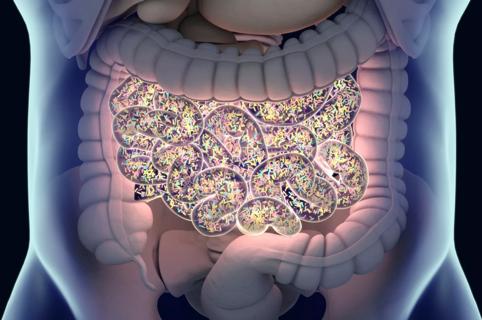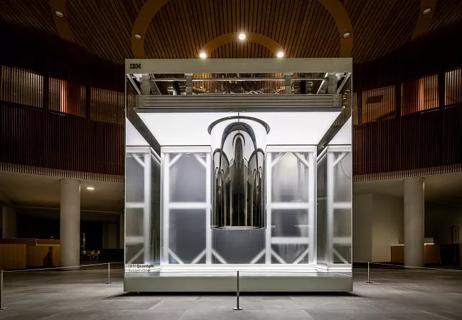Molecular markers could potentially predict major adverse side effects

Among the thousands of metabolites detected during an unbiased metabolomic screening by Cleveland Clinic researchers, three have been identified as pathways biologically relevant to severe toxicities following chimeric antigen receptor (CAR) T-cell immunotherapy.
Advertisement
Cleveland Clinic is a non-profit academic medical center. Advertising on our site helps support our mission. We do not endorse non-Cleveland Clinic products or services. Policy
CAR T-cell therapy, which includes axicabtagene ciloleucel (YesCarta®, axi-cel) and tisagenlecleucel (Kymriah®, tisa-cel) — now both FDA approved — helps treat heavily refractory cases of cancers like lymphoma and acute leukemia.
Through clinical trials and clinical practice, there has been increasing awareness of the immunotherapeutic agents’ potentially severe adverse effects, including cytokine release syndrome (CRS) and neurotoxicity (ICANS).
Neetu Gupta, PhD, Director of Lerner Research Institute’s Center of Excellence in Lymphoid Malignancies Research and Brian Hill, MD, PhD, Director of Cleveland Clinic Cancer Center’s Lymphoid Malignancies Program, utilized metabolomic screening to investigate whether a patient’s metabolic makeup may either predispose them to an adverse reaction following treatment or reduce the risk of developing severe toxicity.
Peripheral blood specimens were collected from 41 patients with relapsed/refractory large B cell lymphoma treated with axi-cel (N = 31) and tisa-cel (N = 10). Baseline characteristics as well as response outcomes and toxicity grading for CRS and ICANS were recorded. Plasma was also isolated from blood and analyzed for metabolites.
“We utilized an unbiased approach that didn’t focus on one metabolite. Rather, it was a discovery-based approach,” says Dr. Gupta.
Untargeted metabolomics revealed a total of 1,241 metabolites. Among these metabolites were lipids, amino acids and xenobiotics. Researchers identified three metabolites that were negatively associated with ICANS. They also found plasma metabolites associated with CRS — 23 associated with an increased risk and 204 associated with a decreased risk.
Advertisement
Caffeine metabolism; glycine, serine, and threonine metabolism; arginine biosynthesis and aminoacyl-tRNA biosynthesis were identified as the most significantly represented pathways.
Researchers found that pre-existing signatures present in the plasma at the time of apheresis are strongly associated with toxicities observed in response to CAR T-cell therapies.
“We hope that such findings will eventually better help prepare and empower clinicians for how to treat patients following CAR-T cell immunotherapy,” says Dr. Gupta.
Despite the potential major side effects including CRS and ICANS, Dr. Gupta and Dr. Hill consistently see data that shows immunotherapy is working — and worth the risk.
“Long-term data from two years of clinical studies show that 40% of patients with aggressive lymphoma who received CAR T cell immunotherapy are still in remission,” says Dr. Hill. “We’re seeing that a single treatment can potentially cure a heavily refractory cancer.”
Dr. Gupta adds, “Since the CAR T-cell paradigm is based on a natural T-cell immune response to antigen, once CAR T-cells recognize the specific antigen on tumor cells, a memory of that first interaction is expected to be preserved. We hope that if cancer cells return, CAR T-cells would work from memory.”
Dr. Hill and Dr. Gupta presented their data at the virtual 62nd American Society of Hematology Annual Meeting and Exposition on December 7. By sharing their research, they hope to collaborate with other researchers.
“This type of research requires significant resources and efforts,” says Dr. Hill. “We hope to find strategies that reduce the risk of complications while maintaining treatment’s effectiveness.”
Advertisement
Advertisement

First full characterization of kidney microbiome unlocks potential to prevent kidney stones

Researchers identify potential path to retaining chemo sensitivity

Large-scale joint study links elevated TMAO blood levels and chronic kidney disease risk over time

Investigators are developing a deep learning model to predict health outcomes in ICUs.

Preclinical work promises large-scale data with minimal bias to inform development of clinical tests

Cleveland Clinic researchers pursue answers on basic science and clinical fronts

Study suggests sex-specific pathways show potential for sex-specific therapeutic approaches

Cleveland Clinic launches Quantum Innovation Catalyzer Program to help start-up companies access advanced research technology